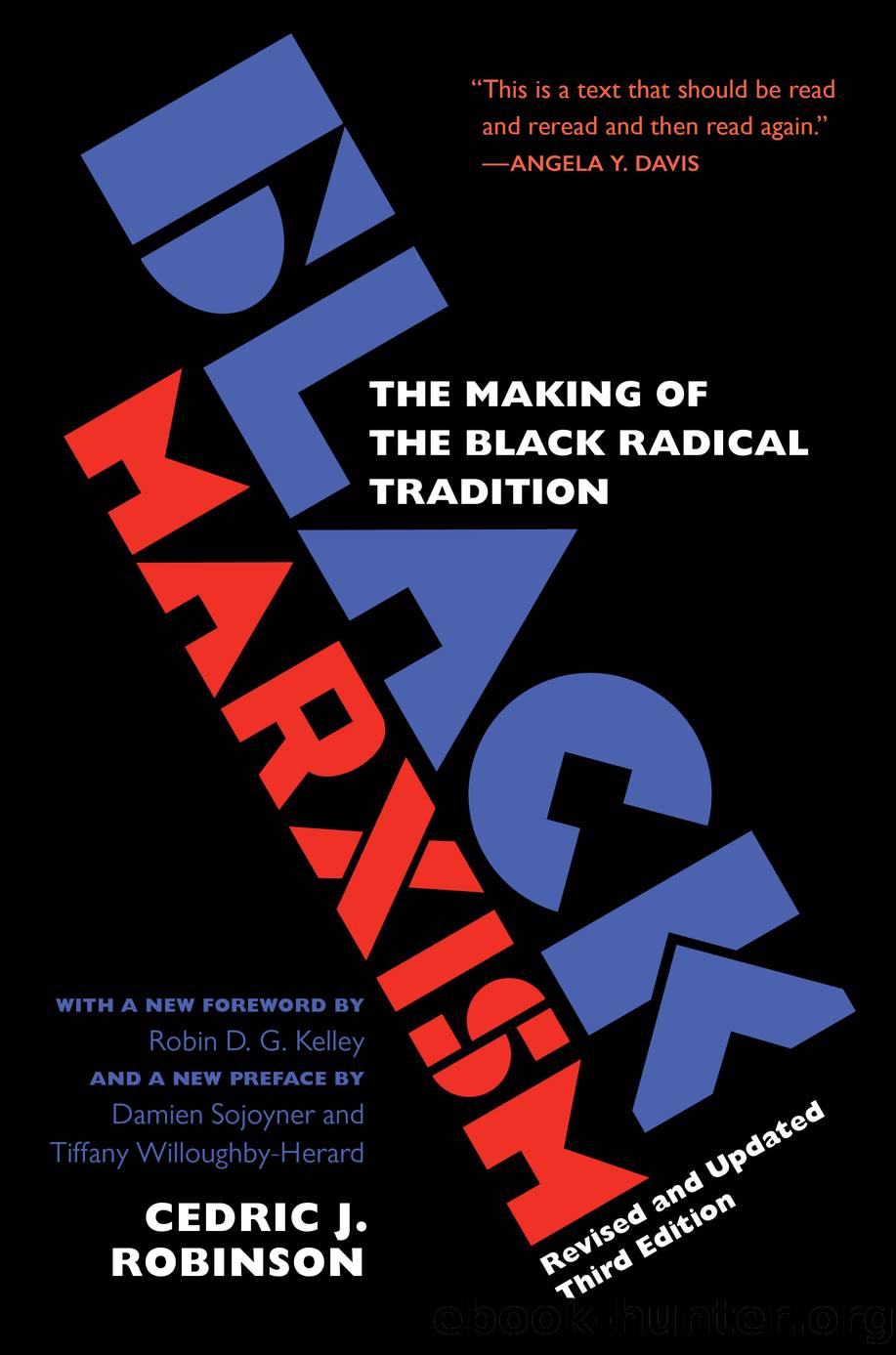Black Marxism, Revised and Updated Third Edition by Cedric J. Robinson;

Author:Cedric J. Robinson;
Language: eng
Format: epub
Publisher: University of North Carolina Press
Published: 2020-11-03T00:00:00+00:00
Chapter 10: C. L. R. James and the Black Radical Tradition
Black Labor and the Black Middle Classes in Trinidad
In the warm Caribbean Sea, where colonies of African labor were compressed on to the Antillesâthe tropic archipelago that serpentined its way from the open claw of the Yucatan and Floridian peninsulas of Central and North America to the northern crowns of Venezuela and Colombia in South Americaâthe same Black antilogic extended itself into the twentieth century. In the earlier century, it had destroyed the plantation economy upon which the momentum of African slavery rested.1 But the Africanization of the islandsâtheir transformation from forced labor into peasant economies where daily life was mediated by the cultural syncretisms of the diasporaâhad been incomplete. Political power had been transferred from the venal order of the plantocracies to an uneasy accommodation between the imperial bureaucracy at the metropoles and the highest strata among the entrenched white minorities. Even Haiti, to employ the language of Rainboro again, was witnessing the destruction of democracy by property in fear of poverty.2 In the British possessions, racial arrogance assumed the posture of trusteeship over the islandsâ Black populations and determined its proper structure should be that of the system of crown colonies.
The Colonial Office soon realized . . . that the West Indies were quite unsuited for self-government. How could assemblies so blatantly unrepresentative of the bulk of the population be granted responsibility, asked the veteran civil servant, Sir Henry Taylor? As the islands were fast becoming financial liabilities, the old representative constitutions became a bar to good government. The new free populations could never by ârepresentedâ under existing conditions. Thus the idea took root that the West Indies should be persuaded to reconsider their constitutions and become crown colonies.
By 1875 all the Caribbean colonies except Barbados (to which might be added the Bahamas and Bermuda) agreed to give up their old constitutions and become Crown colonies. In 1868 the colonial secretary announced that the new legislative councils would all have a basic feature: âthat the power of the Crown in the Legislature, if pressed to its extreme limit, would avail to overcome every resistance that could be made at it.â In other words, the British government had stepped into the West Indies to protect the population from the power of the former slave-owning class.3
Download
This site does not store any files on its server. We only index and link to content provided by other sites. Please contact the content providers to delete copyright contents if any and email us, we'll remove relevant links or contents immediately.
Cecilia; Or, Memoirs of an Heiress — Volume 1 by Fanny Burney(32533)
Cecilia; Or, Memoirs of an Heiress — Volume 2 by Fanny Burney(31931)
Cecilia; Or, Memoirs of an Heiress — Volume 3 by Fanny Burney(31922)
The Great Music City by Andrea Baker(31907)
We're Going to Need More Wine by Gabrielle Union(19027)
All the Missing Girls by Megan Miranda(15906)
Pimp by Iceberg Slim(14472)
Bombshells: Glamour Girls of a Lifetime by Sullivan Steve(14042)
For the Love of Europe by Rick Steves(13837)
Talking to Strangers by Malcolm Gladwell(13336)
Norse Mythology by Gaiman Neil(13325)
Fifty Shades Freed by E L James(13224)
Mindhunter: Inside the FBI's Elite Serial Crime Unit by John E. Douglas & Mark Olshaker(9305)
Crazy Rich Asians by Kevin Kwan(9267)
The Lost Art of Listening by Michael P. Nichols(7485)
Enlightenment Now: The Case for Reason, Science, Humanism, and Progress by Steven Pinker(7300)
The Four Agreements by Don Miguel Ruiz(6735)
Bad Blood by John Carreyrou(6606)
Weapons of Math Destruction by Cathy O'Neil(6253)
